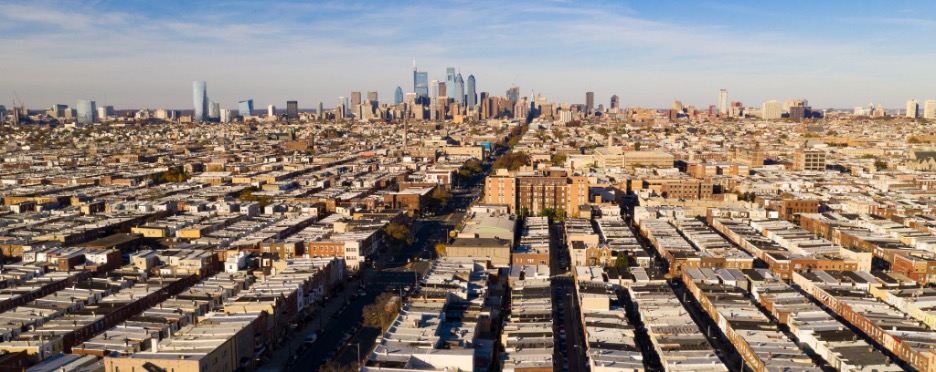
Part I in a series by Dylan Lewis, ecoWURD Senior Producer
What image comes to mind when you think about the environment? Is it a lush forest bursting with vibrancy? Or an open field where the sun casts its warmth over the rolling hills? How about an icy tundra? When we think of the environment, especially in the context of environmental justice, we tend to center our conversations around preserving the natural world.
However, city landscapes are a huge part of our environment: they encompass our homes, our workplaces, and where we shop for groceries. These are all aspects of our environment. Environmental justice includes the built environment and ensuring we have equitable and inclusive housing for not just some people, but all people.
Recently, on WURD, Charles Ellison hosted a special ecoWURD panel in conjunction with the Council of State Governments Eastern Regional Conference to discuss the problem of unaffordable housing. The panelists included: NY state senator and chair of CSG East Council on Communities of Color, Kevin Parker; PA state senator Nikil Saval; Lauren Bealore, associate director of state & local policy at Prosperity Now; and Sabrina Bazile from the Black Homeownership Project at the Center for NYC Neighborhoods. Following the panel discussion, Ellison spoke with Ty Brown, deputy director of Galaei, and Dr. G.S. Potter, housing advocate and senior editor of theBEnote. The guests discussed why the term “affordable housing” is ineffective and then proposed solutions to this vast problem that every city faces.
The Myth of “Affordable” Housing

The US Department of Housing and Urban Development defines affordable housing as, “housing on which the occupant is paying no more than 30 percent of gross income for housing costs, including utilities.”
This definition poses some problems as the question becomes: Affordable for who? Nearly a quarter – or 22.3 percent – of Philadelphians live in poverty. The state minimum wage is still $7.25/hr. When asked to define affordable housing, nearly all the panelists pointed to an affordability paradox. “There is no one definition of affordable. When you talk about affordable, the question is affordable for who? I represent a working-class district. The dynamic in my community is I have teachers married to social workers who have no place to live. Nurses are married to transit workers who have no place to live. My definition in my community is really based around workforce housing as opposed to low-income housing. I think when we talk about affordable, that the issue is about affordable for who,” said Sen. Parker.
Various factors go into defining affordable housing, and this matrix is constantly shifting depending on location, local zoning laws and more. The average cost of rent in Philadelphia is rising steadily as are the prices of groceries and gas. Housing is unaffordable not just because it’s too expensive on its own but because the other things that factor into cost of living are too expensive. “We have to think about who and what coined those terms, affordable housing and also think about who coined the phrase cost of living. That shouldn’t even be a phrase, because there should be no cost to live and breathe in this country,” said Bealore. MIT’s living wage calculation for Philadelphia county is an annual income of $37,169 (before taxes) for a single person with no children. This number increases when you factor in having children. By these metrics, someone who works the minimum wage in Philadelphia cannot afford to live there.
By the definition of affordable housing that we currently use, someone with no income cannot be housed. Ultimately that is not affordable. The terminology must expand because if we leave it as is right now, we are erasing thousands of people within our city. “I’m coming from a space where ‘affordable housing’ is housing that everybody can afford at all incomes. We haven’t seen the affordable housing that people need for low to no income because of the narrow definition of area median income as defined by the US Department of Housing and Urban Development. But largely, if I’m coming from a framework of housing as a right, then it’s housing that everybody should be able to afford,” said Bazile.
What Bazile is proposing is a framework shift. One where we abandon the “affordable housing” metrics and switch to universal housing that treats housing as a human right. Sen. Saval agreed. “We should be striving for a situation in which we don’t really create distinctions between affordable housing and other kinds of housing. That everyone who needs housing–which is everyone–has the right to be able to secure it and can do so without undue burden on themselves.”
In the next part of our series “There is No Cost To Live,” we’ll explore the root causes of this current Unaffordable Housing Crisis. Stay tuned for more at ecoWURD.com.



